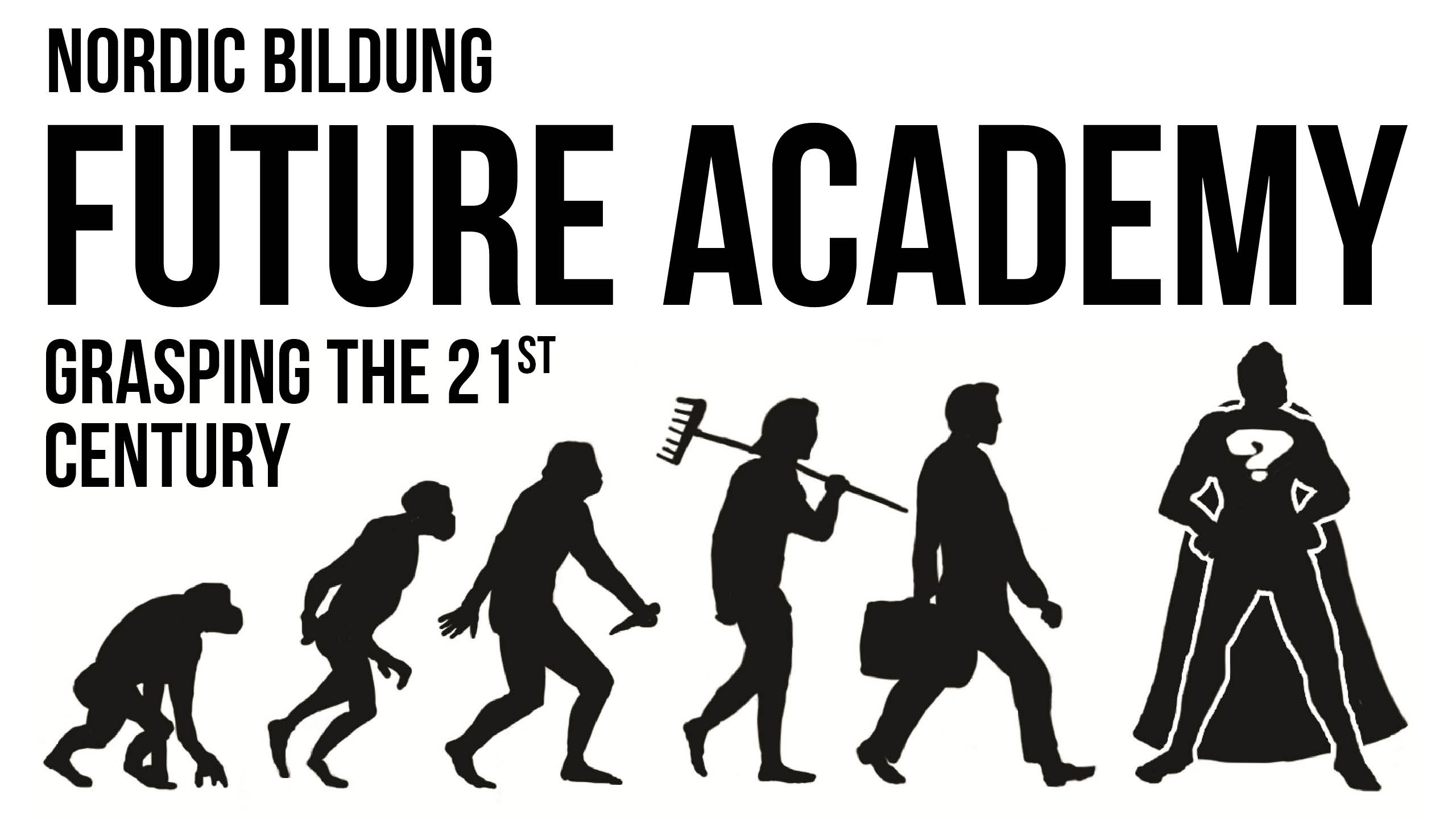Why?
We live in overwhelming times; what should we do about it, and what do we need to know to do it?
With a deeper understanding of the structures behind the development we can navigate it better and make wiser decisions.
What?
Nordic Bildung Future Academy takes you through 10 modules, each of which will give you a new prism through which to see and grasp the world. Your perspectives will change.
How?
Each module is a combination of presentations, discussions, and group exercises. Each module is 2½ hours and there are 30 minutes of preparation before each.
For Whom?
Professionals from such diverse fields as medicine, communication, engineering, IT development, teaching, and plumbing have enjoyed and learned a lot from our Future Academy. Everyone has a part!
What some of our participants say:
I’m falling up. I am bombarded with new thoughts, stories, quite unexpected viewpoints and experiences. This is called Nordic Bildung Future Academy, and I really love the way this unusual program is constructed and run: without fears, with plenty of jokes and good humor, and high-level thinking. This is true learning—making me feel like my mind is actually expanding. It really is: UP!
Mihail Krikunov
Dean, Kyiv School of Economics
Participating in the Nordic Bildung Future Academy has been like opening new windows of possibilities in my mind. Grounded scientific content and disruptive, innovative ideas brougth with wisdom and care by Lene Rachel Andersen in each module enhances the curiosity and willingness to cocreate a more meaninful future for education and society.
Inês Medeiros
Psychologist and founder of Values Move, Brazil
Nordic Bildung Future Academy online; all sessions are 19:00-21:30 CET
Spring 2025 price: 499 Euro
Early bird price until January 10th: 399 Euro
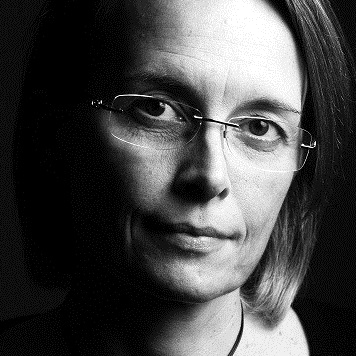
Host & teacher: Lene Rachel Andersen
- Session 1: February 3
- Session 2: February 10
- Session 3: February 17
- Session 4: February 24
- Session 5: March 3
- Session 6: March 10
- Session 7: March 17
- Session 8: March 24
- Session 9: March 31
- Session 10: April 7
- Bonus module 11: You do a presentation if you want: Date TBA
Session 1: State of the World
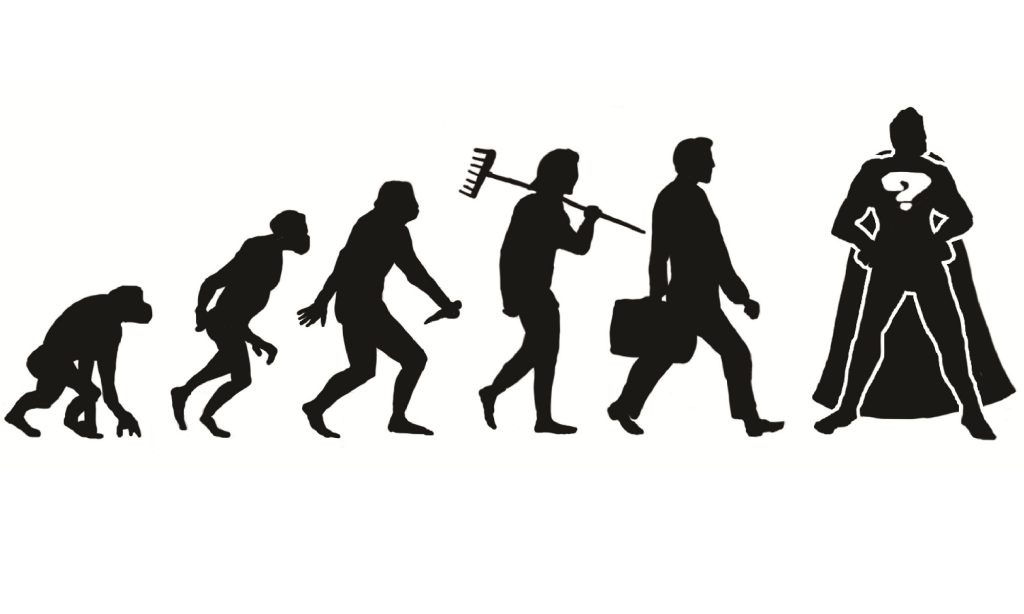
We live in troubling times and it can seem overwhelming. Technological development, climate change, and other wicked problems are challenging the foundation of civilization; to deal with it we need to be able to grasp it and communicate it.
This first session presents an overview of the situation for people, planet, politics, profits, and potentials. It also raises crucial questions as: What does it mean to be human in the 21st Century? What are our challenges? What are our possibilities? What kind of future do we want? How do we keep our humanity and unfold as individuals, communities and a species?
What you’ll get:
You will see a bigger picture that will allow you to make better long term decisions.
Session 2: Bildung and Personal Development
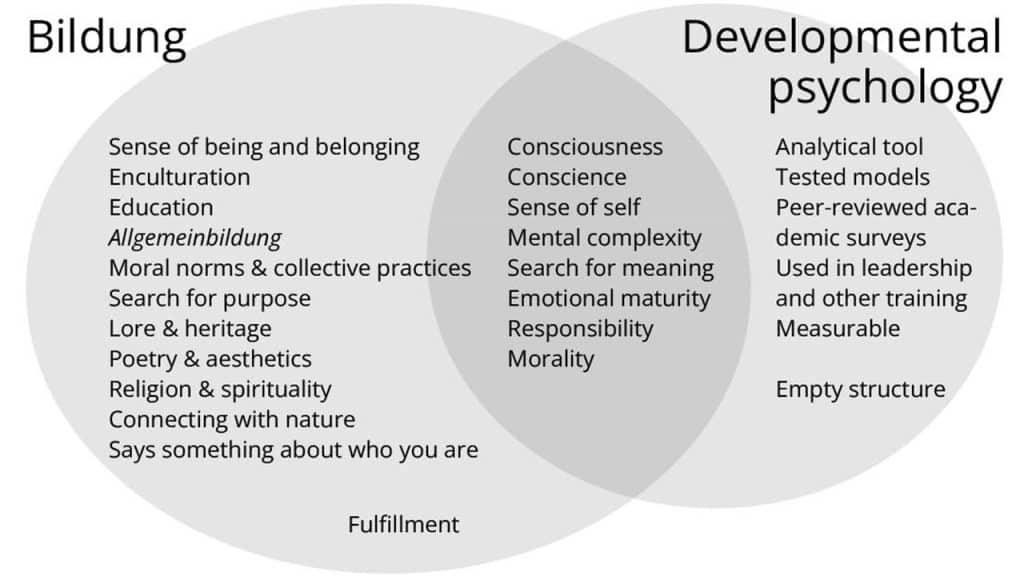
Bildung is two kinds of knowledge: the easily transferable kind of knowledge that schools tend to focus on, and the kind of knowledge that cannot be transferred, which comes from life experience, such as heartbreak, becoming a parent, or losing a spouse etc. The combination of the two and one’s struggles with them are bildung, and bildung is the process as well as the result.
The emotional and moral development that is part of bildung is also described by developmental psychology. This module therefore introduces both bildung and developmental psychology and explores how we handle change.
What you’ll get
You will get a better overall understanding of yourself and people around you, why change stresses some and not others, and why some (work) relationships work and others are filled with conflict.
More on the topic:
Session 3: Cultural Codes
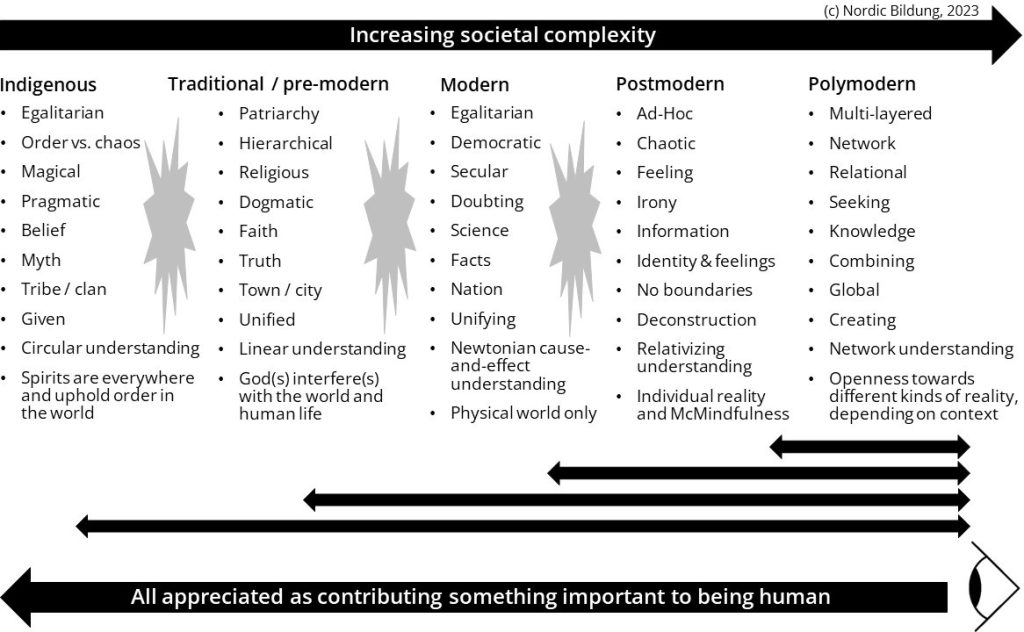
As societies grow in size and complexity, and as communication technology evolves, so do our moral norms and cultural codes. History is by no means linear, but there is development over time, and there are structures in those changes that allow us to understand values systems and cultural clashes in more advanced ways than just “they are different.”
This module also includes an introduction to hypermodernity, metamodernism 1, metamodernism 2, and polymodernity.
What you’ll get
You will be able to meet multicultural challenges and grasp cultural clashes among individuals, and between individuals and organizations.
More on the topic:
Session 4: Circles of Belonging and the Nation State
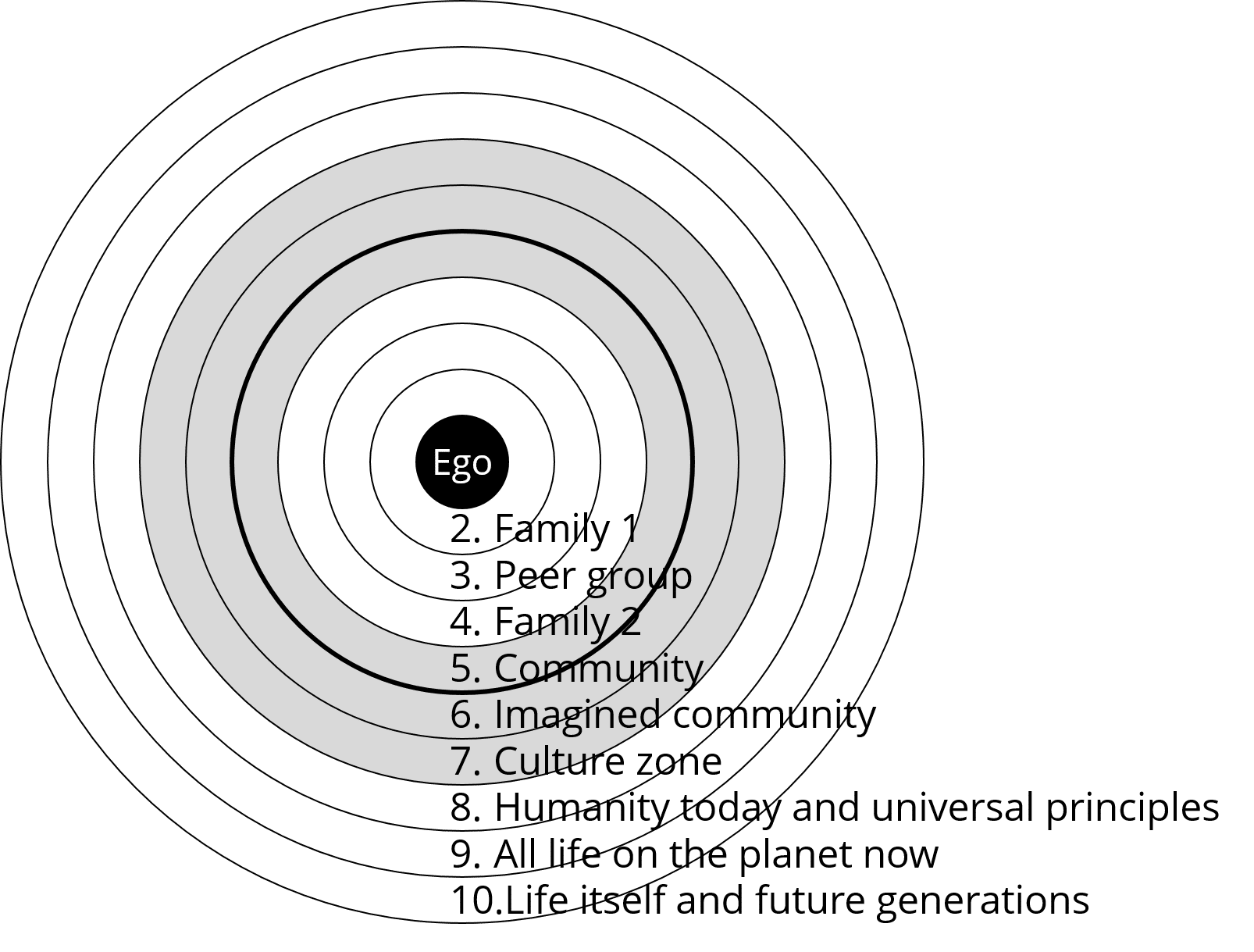
As the world connects through social media and global markets, where do we belong? Where is Home? Where do we feel a sense of belonging, where do we feel commitment and responsibility, and where do we have it within our means to make a difference?
We will explore this through the Circles of Belonging, and we are going to look at the crucial role that the nation state plays in cultural development and global stability. Nationalism is mostly used as a curse word, but could we have democratic states without it?
What you’ll get
This session provides you with a tool to calibrate your relationships so that they match the group size well.
Session 5: Technological Development
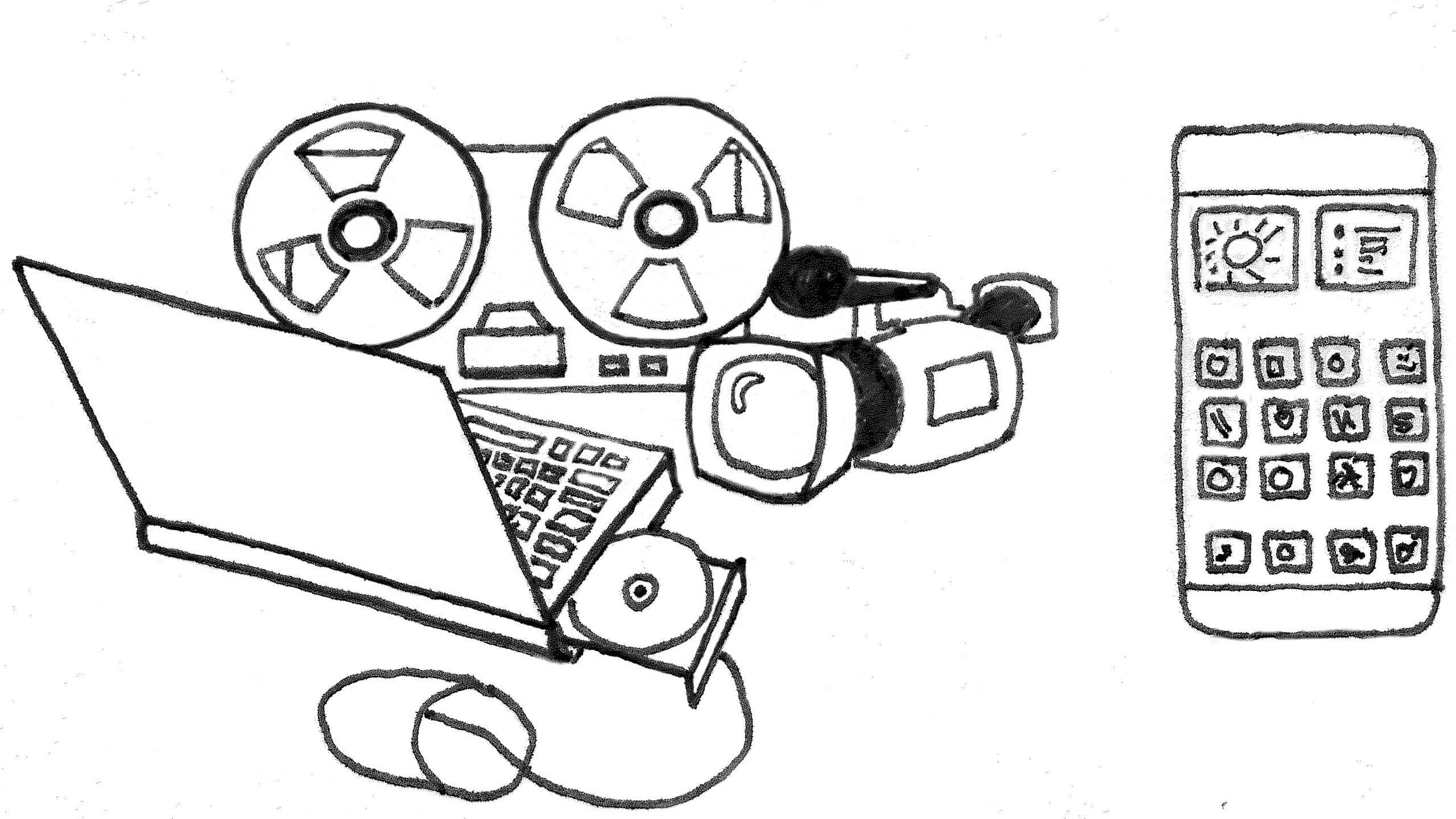
When Gutenberg invented the printing press, Europe fundamentally changed. We are facing even bigger changes with the current technological development.
Biotechnology, Information technology, Artificial Intelligence, Nanotechnology, and Cognitive technologies are about to fundamentally change what it means to be human.
This module presents the forefront of technological development and the dilemmas it raises.
What you’ll get
A tech map that allows you to navigate the overall development and to consciously position yourself.
Session 6: Bildung & Pedagogy versus Psychology
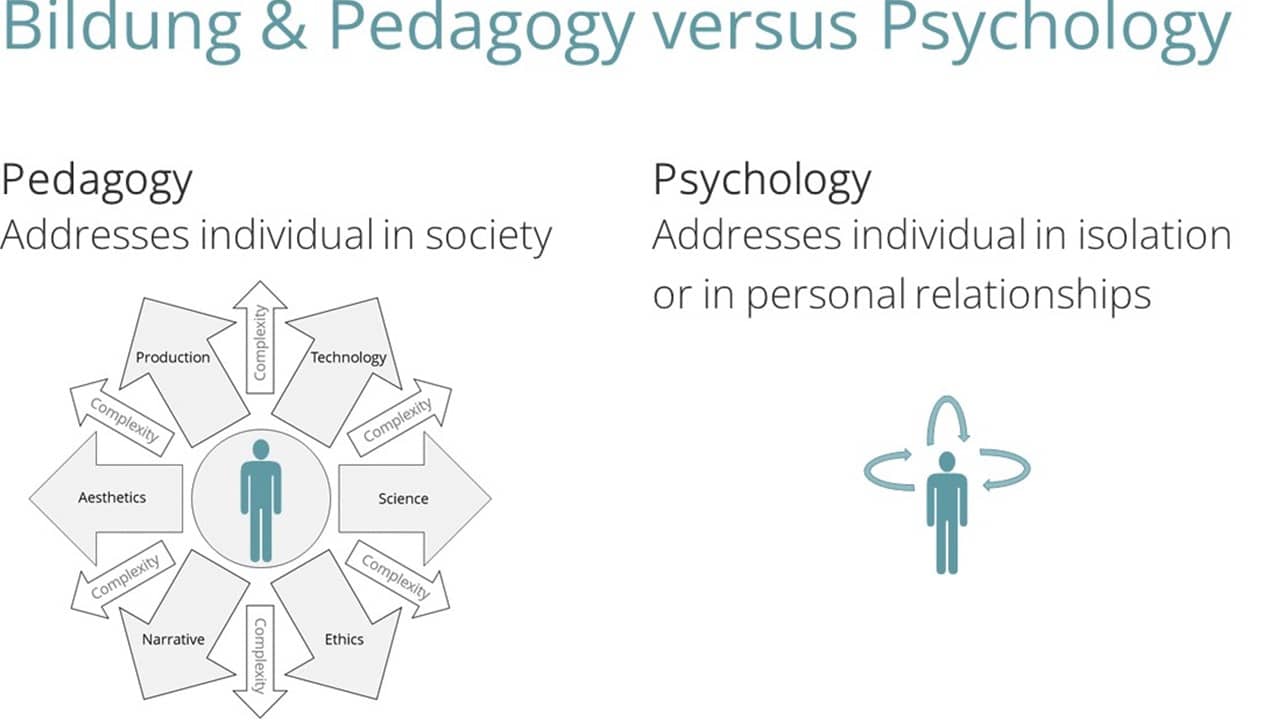
Psychology helps us understand people the way the they are, and it is a helpful analytical tool in understanding attitudes towards change.
We will explore the differences between bildung, pedagogy, and psychology, and you will get an introduction to the works of philosophers of pedagogy such as Comenius, Johann Heinrich Pestalozzi, John Dewey, N.F.S. Grundtvig, Christen Kold, Ellen Key, Myles Horton, and Paulo Freire.
We will explore the power of pedagogy and andragogy (educating adults) as tools for better meaning-making, leadership, and collaboration, and for change.
What you’ll get
In times of turbulence we need new education. We need new pedagogy and bildung. An understanding of the interplay between how we think and behave, and how we learn. And an understanding of what a powertool education is.
More on the topic:
Session 7: The Bildung Rose
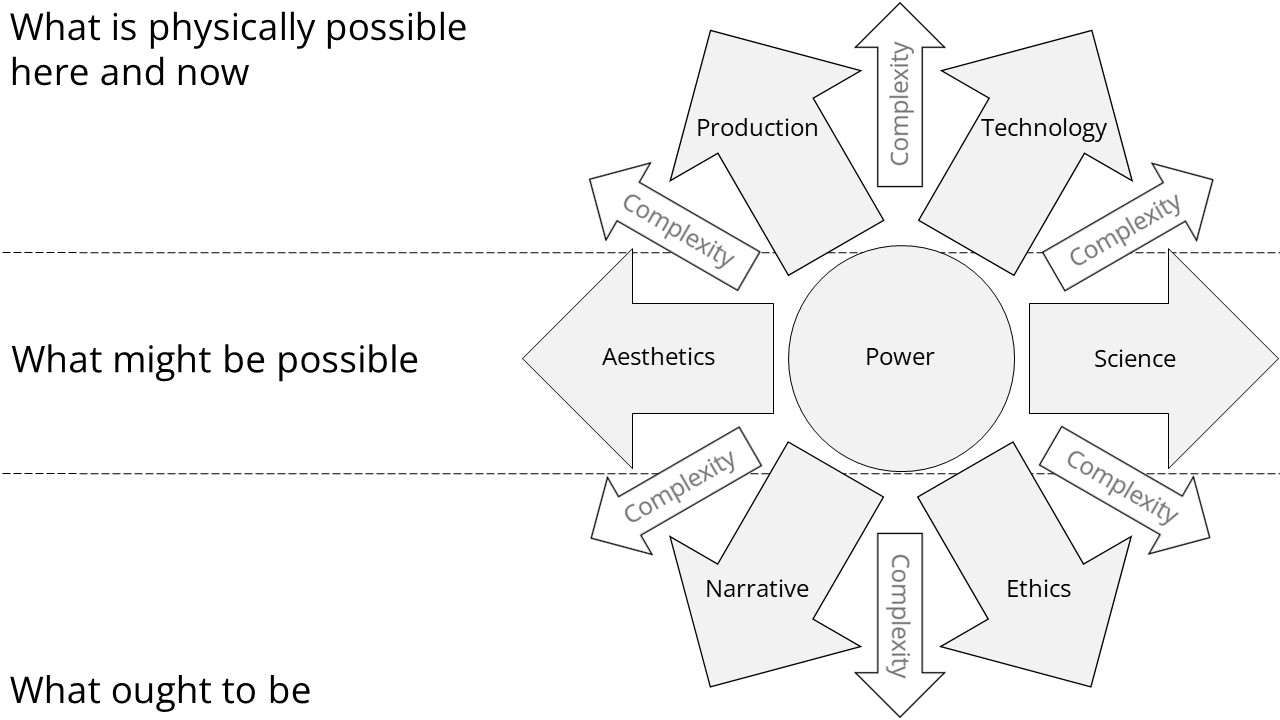
Are you and/or your organization thriving, and is there a quick way to find your blind angles if you are not? Are you contributing to sustainability and societal thriving, and is there a shortcut you can take if it is not the case?
This session introduces the Bildung Rose model, which describes society through seven domains: production, technology, aesthetics, power, science, narrative, and ethics. All functioning societies have these seven domains, and the more they are in balance, the more resilient and well-functioning the society.
We will explore the “inner workings” of the model and how you can use it.
What you’ll get
This session gives you a tool for more diverse thinking to improve your organization. The Bildung Rose is also a helpful tool for self-discovery and improvement.
More on the topic:
Session 8: Systems Thinking and Complexity — Part I
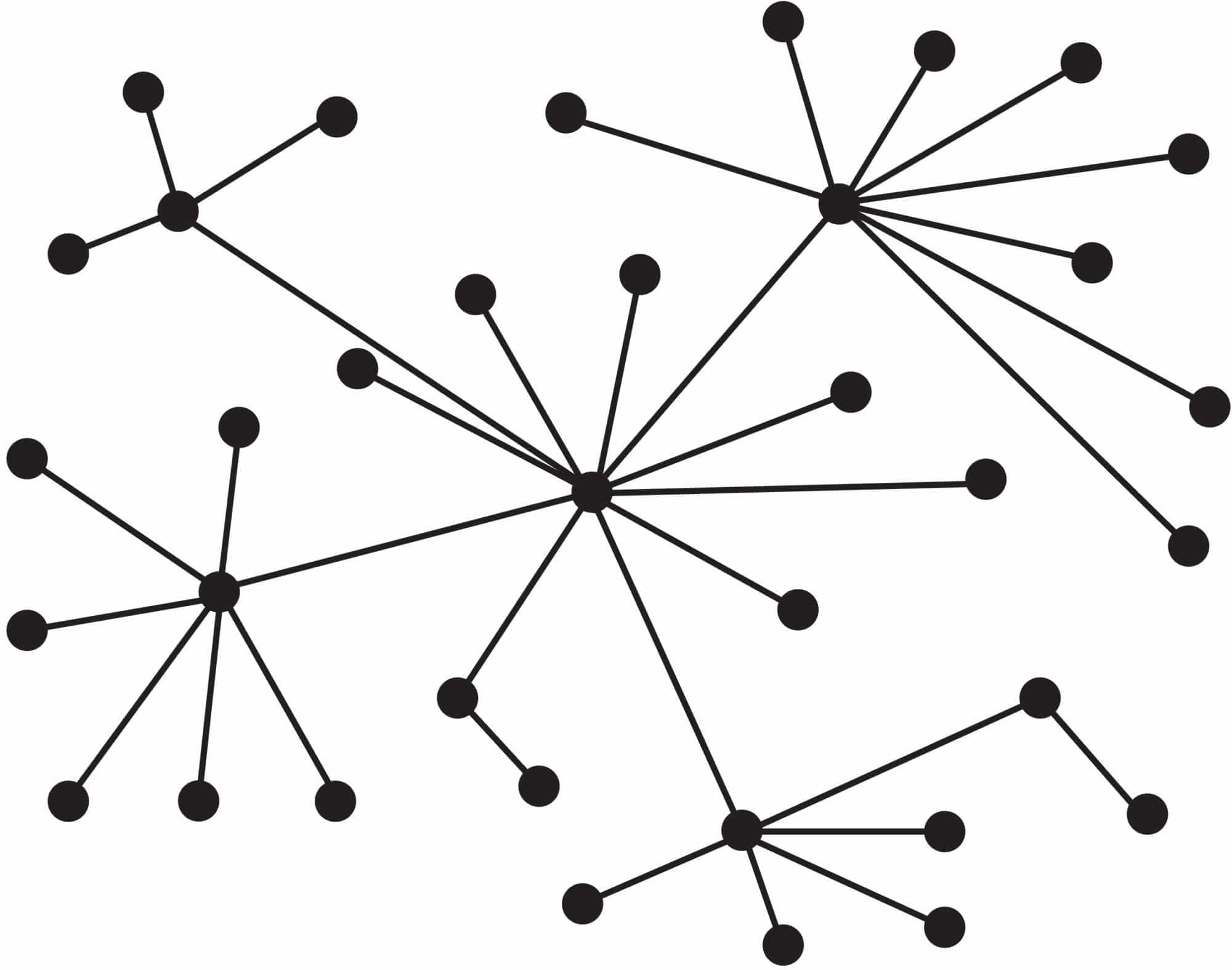
Though things change rapidly, there are stable patterns in the way the changes unfold. Awareness about these stable patterns can help us grasp the changes and navigate them safely. It is even possible to get a “free ride” on some of the patterns.
The patterns can also be seen as shortcuts for sense-making. Once you understand these patterns, the big picture becomes a lot simpler.
This session introduces scale-free networks and theory of complexity (as defined by Brian Arthur).
What you’ll get
After this session, the overall development will be less confusing and overwhelming, and you will be able to grasp your context and better position yourself.
Session 9: Systems Thinking and Complexity — Part II

In this second session about complexity, we will look at the process of evolution, in biology as well as in culture and society.
The module also relates systems thinking to the Sustainable Development Goals.
What you’ll get
This session adds to the previous and you will be able to see how several patterns interact.
Session 10: Freedom and Democracy

How do we best protect, develop, and spread the modes of self-organization, responsibility, and governance that allow individuals and communities to thrive and achieve the highest degrees of fulfillment?
What you’ll get
Deep conversations about how we move on as a civilization and as a species.
Session 11: You Present — if you would like to
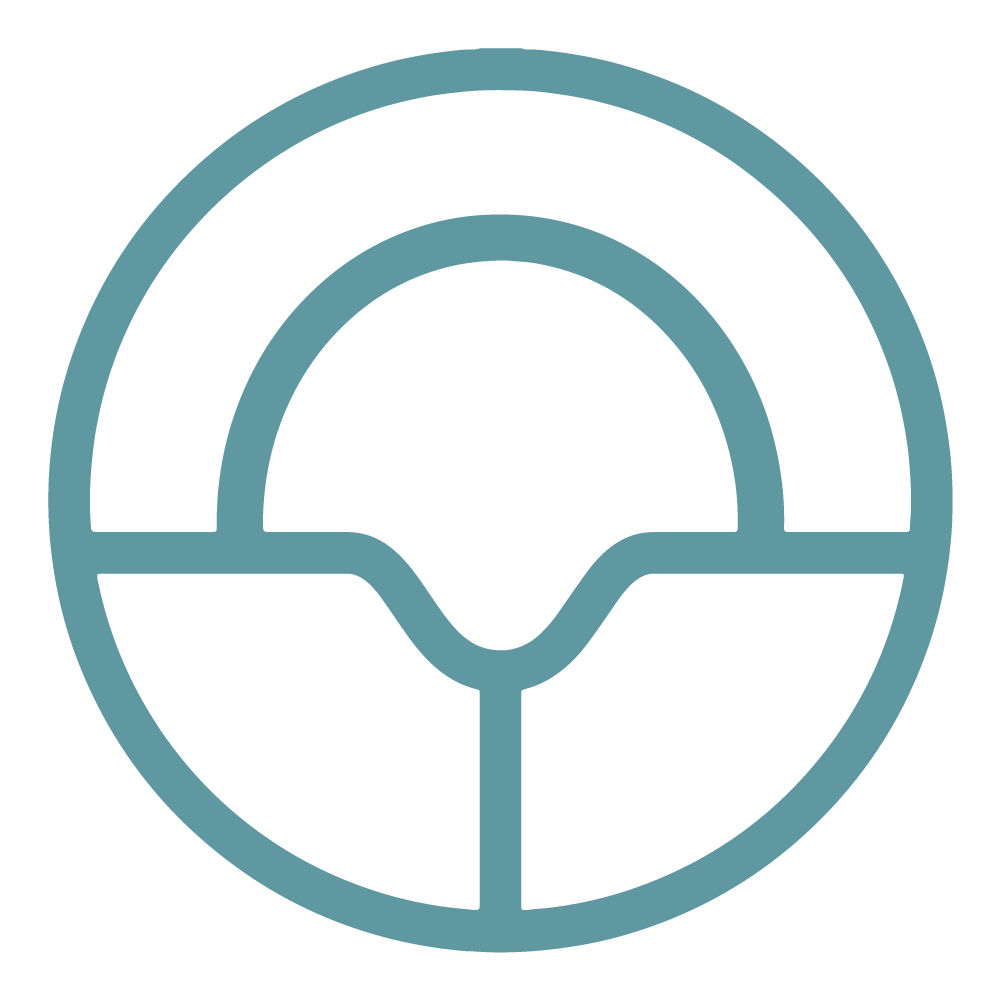
After 10 sessions of the Future Academy, you now get the opportunity to connect your work to the content of the Academy and to share it with the rest of the group.
Depending on the number of people who sign up for this, each participant will get 10 to 15 minutes for their presentation + feedback from the rest of the group. If everybody wants to make a presentation, we may add more hours or one more date; time will show…
What you’ll get
This is when you will learn the most…
